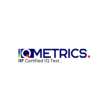What is the Standard IQ Test Called?
Standard IQ Test

The Standard IQ Test Demystified: Exploring Types, History, and Significance
Introduction
Intelligence Quotient (IQ) tests have long been used as a measure of cognitive abilities and intellectual potential. These tests provide insights into an individual's problem-solving skills, memory, reasoning, and other cognitive abilities. In this comprehensive guide, we will unravel the mysteries surrounding the standard IQ test, from its types and history to its significance in various domains. Whether you are a student, teacher, professional, or simply curious about IQ tests, this article will provide valuable insights into this widely discussed topic.
Understanding IQ Tests
1. What is an IQ Test?
IQ tests, or intelligence quotient tests, are standardized assessments designed to measure an individual's cognitive abilities. These tests aim to quantify a person's intellectual potential by evaluating their reasoning, problem-solving, and analytical skills. Through a carefully constructed set of tasks and questions, IQ tests provide a numerical score that represents an individual's cognitive abilities relative to their peers.
2. Types of IQ Tests
a. Stanford-Binet Intelligence Scales
The Stanford-Binet Intelligence Scales is one of the most recognized and widely used IQ tests. Developed by Alfred Binet and Theodore Simon, this test has a rich history and has undergone several revisions over the years. It assesses cognitive abilities across various age ranges and is administered individually. The Stanford-Binet test measures both verbal and non-verbal abilities and covers domains such as fluid reasoning, knowledge, quantitative reasoning, visual-spatial processing, and working memory.
b. Wechsler Intelligence Scale for Children
The Wechsler Intelligence Scale for Children (WISC) is specifically designed to measure the cognitive abilities of children aged 6 to 16 years. Developed by David Wechsler, this test assesses a broad range of cognitive functions, including verbal comprehension, perceptual reasoning, working memory, and processing speed. The WISC provides valuable information about a child's intellectual strengths and weaknesses, aiding in educational planning and intervention.
c. Other Common IQ Tests
In addition to the Stanford-Binet and WISC, there are several other IQ tests that are widely used in different contexts. These include the Wechsler Adult Intelligence Scale (WAIS) for assessing adult intelligence, the Cognitive Assessment System (CAS), and the Woodcock-Johnson Tests of Cognitive Abilities. Each test has its unique focus, administration methods, and age ranges, ensuring that individuals of different age groups can undergo appropriate cognitive evaluation.
3. IQ Test Sections and Format
IQ tests typically consist of different sections designed to assess various cognitive abilities. These sections may include verbal reasoning, mathematical ability, spatial visualization, logical reasoning, and working memory. The questions or tasks within each section are carefully crafted to challenge the individual's cognitive skills and provide a comprehensive evaluation of their intellectual potential. Standardized administration ensures that test-takers are subjected to the same conditions, allowing for accurate comparison of results.
The Purpose and Significance of IQ Tests
IQ tests serve various purposes and play a vital role in diverse domains. Let's explore some of the key areas in which IQ tests are utilized:
1. Use of IQ Tests in Education
IQ tests have been instrumental in identifying students with intellectual giftedness. By assessing a student's cognitive abilities, educators can tailor their educational experiences to challenge and support their unique talents. IQ tests also play a crucial role in identifying learning disabilities, facilitating early interventions, and ensuring appropriate educational plans are developed for students with specific cognitive needs.
2. IQ Tests in Clinical Psychology
In clinical psychology, IQ tests are used to assess cognitive abilities in individuals with suspected intellectual disabilities, psychiatric disorders, or neurological conditions. These assessments help psychologists understand an individual's cognitive strengths and weaknesses, aiding in diagnosis, treatment planning, and monitoring cognitive development over time.
3. IQ Tests in Professional and Occupational Settings
IQ tests are often employed in professional and occupational settings to assess an individual's cognitive abilities and their suitability for specific roles. Employers use IQ tests to evaluate job applicants, predict job performance, and match candidates to roles that require specific cognitive skills. However, it's important to note that IQ tests should not be the sole determinant of a person's suitability for a job, and other factors, such as personality traits and experience, should also be considered.
Interpreting and Understanding IQ Scores
IQ scores are derived from standardized assessments and are presented as numerical values. Understanding and interpreting these scores is crucial for gaining insights into an individual's intellectual potential. Here are some key points to consider:
1. IQ Score Ranges and Categories
IQ scores are typically categorized into ranges representing different levels of intellectual functioning. These categories often include:
- Intellectual Disability: IQ below 70
- Borderline Intellectual Functioning: IQ between 71-85
- Average Intellectual Functioning: IQ between 86-115
- Above Average Intellectual Functioning: IQ between 116-130
- Highly Gifted: IQ above 130
It's important to remember that these categories are general guidelines and should be interpreted in the context of an individual's specific strengths and weaknesses.
2. Factors Affecting IQ Scores
IQ scores can be influenced by various factors, including genetic predispositions, environmental influences, and individual effort. While genetic factors contribute to cognitive abilities, environmental factors such as education, cultural experiences, and socioeconomic status also play a significant role. It's important to consider these factors when interpreting IQ scores, as they provide valuable context and help avoid oversimplifications.
Criticisms and Controversies Surrounding IQ Tests
While IQ tests have proven to be valuable tools in assessing cognitive abilities, they are not without criticisms and controversies. It is important to acknowledge these concerns to gain a holistic understanding of IQ testing. Let's explore some of the main criticisms:
1. Cultural Bias in IQ Testing
One of the main criticisms of IQ tests is their potential cultural bias. Some argue that certain questions or tasks within IQ tests may be more familiar or culturally relevant to certain groups, giving them an advantage over others. Efforts have been made to address this bias by developing culturally fair test items and considering different cultural backgrounds during test administration.
2. Limitations and Factors to Consider
IQ tests provide a snapshot of an individual's cognitive abilities in a specific moment in time. However, it's important to remember that intelligence encompasses various domains beyond what IQ tests measure. Other cognitive abilities, such as creativity, emotional intelligence, and practical intelligence, are not captured by traditional IQ tests. Therefore, it is crucial to consider these other factors when assessing intellectual potential.
3. Ethical Considerations
Using IQ tests in certain contexts, such as employment or educational decisions, raises ethical considerations. It is important to use tests responsibly and ensure that they are only one component of a comprehensive assessment process. The use of IQ tests should be accompanied by other evaluation methods to provide a well-rounded understanding of an individual's abilities and potential.
The Future of IQ Testing
The field of IQ testing is continuously evolving, adapting to new discoveries and advancements in cognitive science and measurement. Here are some potential future trends and developments in IQ testing:
Advancements in Test Design: Researchers are continually refining test design to reduce biases and capture a broader range of cognitive abilities. New test formats and adaptive testing methods are being explored to provide more accurate and personalized assessments.
Emerging Technologies: The use of technology, such as computer-based assessments and online testing platforms, is becoming more prevalent in IQ testing. These technological advancements allow for greater accessibility, scalability, and efficiency in administering and scoring IQ tests.
Integration with Other Assessment Methods: Integrating IQ tests with other assessment methods, such as personality assessments and performance-based evaluations, can provide a more comprehensive understanding of an individual's abilities, strengths, and weaknesses.
Cross-Cultural Considerations: As the world becomes more interconnected, the development of IQ tests that account for the diversity of cultures, languages, and experiences becomes increasingly important. Efforts are being made to develop culturally inclusive and multilingual assessments.
Conclusion
The standard IQ test continues to be a widely used tool for assessing cognitive abilities and intellectual potential. While it has its limitations and criticisms, understanding its history, types, and significance can provide valuable insights into how it is utilized across educational, clinical, and professional domains.
As researchers continue to refine and innovate IQ testing methods, it is important to approach and interpret IQ scores with a holistic perspective, considering other contributing factors and considering the limitations of these tests. By doing so, we can use IQ tests as one part of a comprehensive assessment process to gain a deeper understanding of cognitive abilities and individual potential.
Remember, an IQ test score is just one piece of the puzzle in understanding human intelligence. It is essential to recognize and appreciate the diverse range of abilities and talents that make up our multifaceted cognitive landscape.
Take an IQ test to explore your own cognitive abilities and discover more about your intellectual potential.
Note: This article provides general information and should not substitute professional assessment or advice. If you have specific concerns or questions about your cognitive abilities, please consult with an appropriate professional.
About the Creator
IQ Metrics
IQMetrics.org is a comprehensive platform offering insightful resources on IQ testing, assessments, and understanding intelligence metrics.
http://iqmetrics.org






Comments
There are no comments for this story
Be the first to respond and start the conversation.